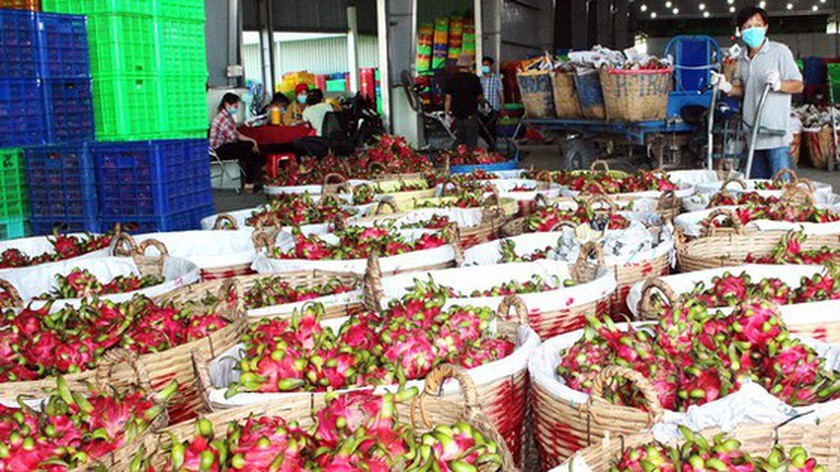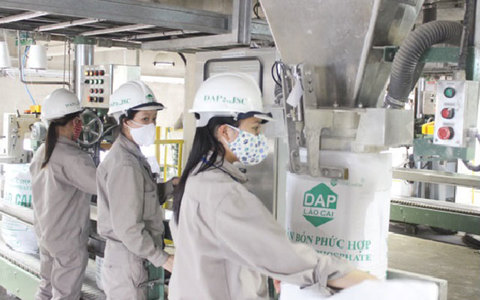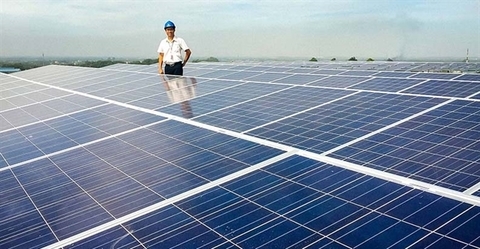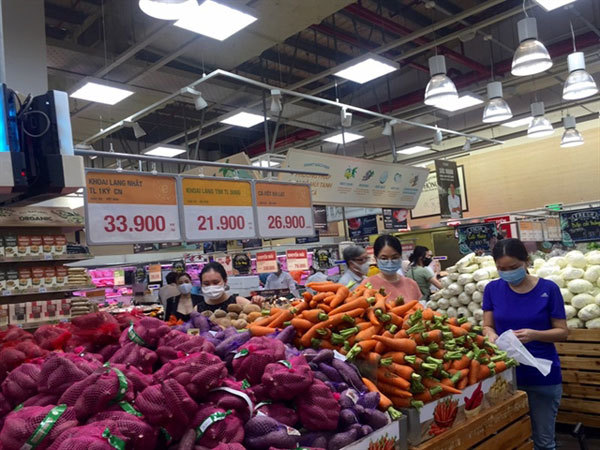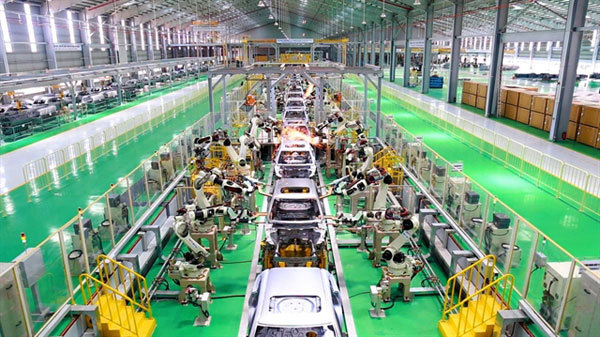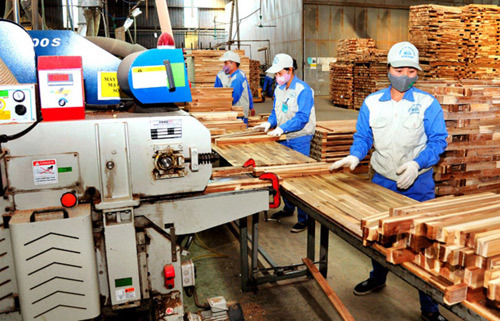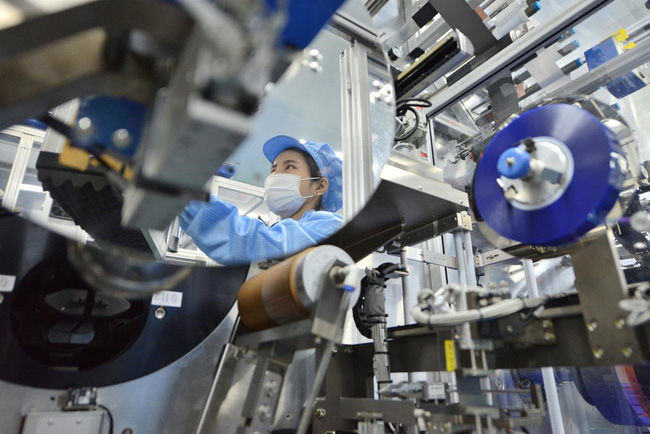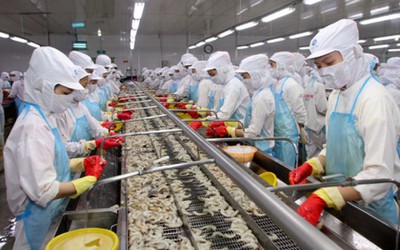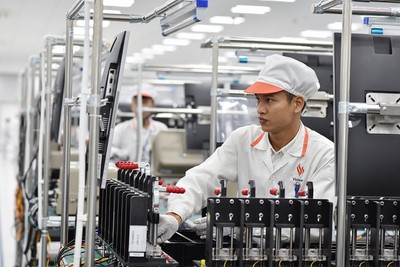- © Copyright of Vietnamnet Global.
- Tel: 024 3772 7988 Fax: (024) 37722734
- Email: evnn@vietnamnet.vn
MoIT
Update news MoIT
Vietnamese export goods do not carry SARS-CoV-2 virus: MoIT
Minister of Industry and Trade (MoIT) affirms that Vietnam's export goods do not contain the SARS-CoV-2 virus, unlike some sources have stated.
Outstanding loans of twelve inefficient projects amount VND21 trillion
 The outstanding loans of twelve inefficient projects under the Ministry of Industry and Trade totalled US$905 million as of the end of 2019, most were overdue, according to the Government’s report to the National Assembly.
The outstanding loans of twelve inefficient projects under the Ministry of Industry and Trade totalled US$905 million as of the end of 2019, most were overdue, according to the Government’s report to the National Assembly.
Transferring solar projects to foreign investors 'normal': MoIT
 The Ministry of Industry and Trade (MoIT) has said that transferring all or part of a solar power project was normal according to market rules and the Investment Law.
The Ministry of Industry and Trade (MoIT) has said that transferring all or part of a solar power project was normal according to market rules and the Investment Law.
VN Trade Ministry suggests gateway to sell local products on Amazon
 Linking the local market with Amazon is suggested as a way to cope with the negative impacts of the COVID-19 pandemic on business and production, said the Ministry of Industry and Trade (MoIT).
Linking the local market with Amazon is suggested as a way to cope with the negative impacts of the COVID-19 pandemic on business and production, said the Ministry of Industry and Trade (MoIT).
No special treatment for support industries: Finance Ministry
 The Ministry of Finance (MoF) and the Ministry of Industry and Trade (MoIT) have failed to find common ground with regards to tax policies for Vietnam’s support industry enterprises.
The Ministry of Finance (MoF) and the Ministry of Industry and Trade (MoIT) have failed to find common ground with regards to tax policies for Vietnam’s support industry enterprises.
Woodwork exports may see zero percent growth rate in 2020 because of Covid-19
 Vietnam exported $485.40 million worth of woodwork from March 1-15 and $2.07 billion from January 1 to March 15, an increase of 13.8 percent compared to the same period last year.
Vietnam exported $485.40 million worth of woodwork from March 1-15 and $2.07 billion from January 1 to March 15, an increase of 13.8 percent compared to the same period last year.
VN government cautious about exporting rice despite plentiful supply
 The Vietnamese government has decided to resume rice exports, but the debate continues about whether the country should continue to do so.
The Vietnamese government has decided to resume rice exports, but the debate continues about whether the country should continue to do so.
Ministry approves 10 per cent to power bills cut
 The Ministry of Industry and Trade (MoIT) has decided to cut power bills for businesses and households by 10 per cent over the next three months to ease their difficulties amid the COVID-19 pandemic.
The Ministry of Industry and Trade (MoIT) has decided to cut power bills for businesses and households by 10 per cent over the next three months to ease their difficulties amid the COVID-19 pandemic.
Trade Ministry proposes exporting 400,000 tonnes of rice in April
 The Ministry of Industry and Trade (MoIT) has proposed to resume rice exports from April, with a volume of 400,000 tonnes, after the ministry has...
The Ministry of Industry and Trade (MoIT) has proposed to resume rice exports from April, with a volume of 400,000 tonnes, after the ministry has...
VN Industry and Trade Ministry makes all public administrative services online
 The Ministry of Industry and Trade (MoIT) has made all of its 292 public administrative services online, 166 of which are level-3 and -4 services while the remainders are level-2.
The Ministry of Industry and Trade (MoIT) has made all of its 292 public administrative services online, 166 of which are level-3 and -4 services while the remainders are level-2.
Many Vietnamese firms could stop operations by late March as inputs run out
 The disruption of materials supply chain from major markets to Vietnam has led to a lower growth rate of the industrial production index in the first two months.
The disruption of materials supply chain from major markets to Vietnam has led to a lower growth rate of the industrial production index in the first two months.
VN Industry Ministry no longer keen on bidding mechanism for solar power price
 The Ministry of Industry and Trade (MoIT) has had a change of heart on the bidding mechanism for solar power tariffs in Vietnam.
The Ministry of Industry and Trade (MoIT) has had a change of heart on the bidding mechanism for solar power tariffs in Vietnam.
Industry and trade to shine on in 2020
 The year 2019 featured significant targets and milestones – both for the five-year Socio-economic Development Plan (2016-2020) and the 10-year Socio-economic Development Strategy (2011-2020).
The year 2019 featured significant targets and milestones – both for the five-year Socio-economic Development Plan (2016-2020) and the 10-year Socio-economic Development Strategy (2011-2020).
Vietnam’s exports set to gain momentum from FTAs
 As an array of new-generation Free Trade Agreements (FTA) start to take effect in early this year, Vietnam’s export commodities can enjoy competitive advantages as a result of the removal of tariff barriers.
As an array of new-generation Free Trade Agreements (FTA) start to take effect in early this year, Vietnam’s export commodities can enjoy competitive advantages as a result of the removal of tariff barriers.
Vietnam to imports 100,000 tons of pork in Q1 to offset shortage
 Vietnam would import 100,000 tons of pork in the first quarter this year to stabilize the domestic market and lower pork prices, which have surged since the outbreak of African swine fever.
Vietnam would import 100,000 tons of pork in the first quarter this year to stabilize the domestic market and lower pork prices, which have surged since the outbreak of African swine fever.
PM blamed ministries for Moody’s negative action
 Delay in paying government debts was due to the lack of seriousness of related government agencies in following the instruction of the prime minister.
Delay in paying government debts was due to the lack of seriousness of related government agencies in following the instruction of the prime minister.
Vietnam passenger car import surges 150% in Jan-Oct
 This resulted in Vietnam importing an average of 9,230 cars per month and over 300 cars per day, and car imports of nearly US$1.75 billion during the period, up 250% year-on-year.
This resulted in Vietnam importing an average of 9,230 cars per month and over 300 cars per day, and car imports of nearly US$1.75 billion during the period, up 250% year-on-year.
Vietnamese goods enjoy market share in 200 countries worldwide
 Vietnam’s exports have enjoyed significant expansion in terms of market scale and commodity structure, thereby making an outstanding contribution to the growth of the country’s export turnover.
Vietnam’s exports have enjoyed significant expansion in terms of market scale and commodity structure, thereby making an outstanding contribution to the growth of the country’s export turnover.
US imposes tax on Chinese goods, affecting Vietnamese businesses
 Chinese and South Korean partners in June unexpectedly announced the cancellation of contracts signed with Zara, a yarn producer in Dong Nai province.
Chinese and South Korean partners in June unexpectedly announced the cancellation of contracts signed with Zara, a yarn producer in Dong Nai province.
Change of direction for VN solar industry
 The country’s feed-in tariff has supported a boom for Vietnam’s solar sector, but now the Ministry of Industry and Trade proposes a rate reduction in order avoid solar projects becoming a victim of their own success.
The country’s feed-in tariff has supported a boom for Vietnam’s solar sector, but now the Ministry of Industry and Trade proposes a rate reduction in order avoid solar projects becoming a victim of their own success.
